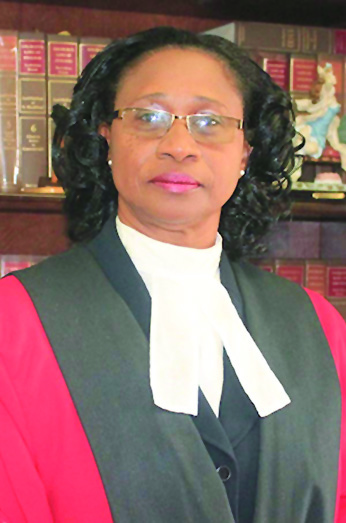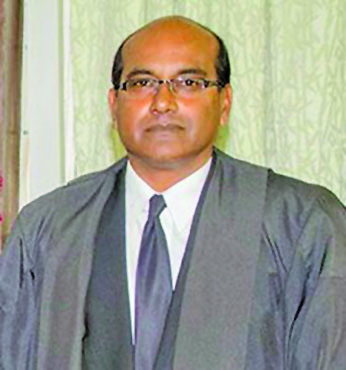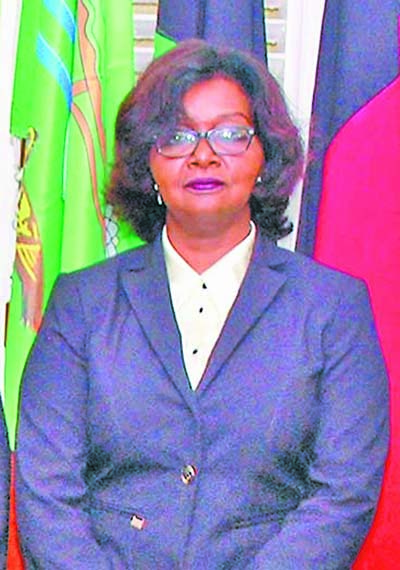…PPP to appeal rejection of 33 as majority of 65 to CCJ
The People’s Progressive Party/Civic (PPP/C) Opposition will be moving to the Caribbean Court of Justice (CCJ) to challenge Friday’s Appeal Court ruling, which stated in a 2:1 split decision that a majority of 34 votes would have been needed to validly pass the no-confidence motion brought against the Government last year.
The ruling means that the motion was not validly passed, and hence the coalition administration was not toppled as a result of the events that occurred in the National Assembly on December 21, 2018 – when the minority Opposition had secured the crossover vote of former Alliance For Change (AFC) Member of Parliament Charrandas Persaud to obtain a 33 majority to pass the no-confidence motion in the National Assembly.

Yonette Cummings-Edwards
Government had subsequently asked the House to reverse the passage of the motion, but its Speaker, Dr Barton Scotland, had declined the request and had advised that the court be approached. As such, Government had gone to the High Court to challenge the validity of the motion, saying that a 34 majority is needed for it to be successfully passed.
Acting Chief Justice Roxane George had, in January, upheld the December 21, 2018 passage of the no-confidence motion, ruling that in Guyana’s 65-member National Assembly a majority is 33. This, however, was appealed by Attorney General Basil Williams.
While Justice Rishi Persaud on Friday dismissed the appeal and conferred with the ruling of the High Court, his colleague appellate judges allowed the state’s appeal. Both Justices Yonette Cummings-Edwards and Dawn Gregory opined that while 33 is the majority of the 65- member National Assembly, the successful passage of a no- confidence motion requires an “absolute majority” of 34, and not the “simple” majority of 33 that has been used to pass ordinary business in the House.
On the other hand, the three appellate judges upheld the Chief Justice’s ruling regarding the appeal filed by private citizen Compton Reid on the validity of Charrandas Persaud’s vote, given his dual citizenship status.
Justice George had ruled in the High Court that while it is illegal for MPs to be dual citizens, in Charrandas’s case, this did not affect the validity of his vote on the motion; and as such, the Appeal Court judges on Friday dismissed the appeal filed by Reid.

Meanwhile, both Justices Cummings-Edwards and Rishi Persaud dismissed the state’s appeal regarding the matter involving political commentator Christopher Ram, who had petitioned the court to have Government resigned and President David Granger call elections within 90 days, as stipulated by Articles 106 (6) and (7) of the Constitution.
The High Court had ruled that Cabinet should have resigned upon the passage of the motion.
The acting Chancellor said in her ruling that the State’s arguments on the Ram case were “out of hand”, and as such, the decision of the CJ would “suffice”. However, Justice Gregory, in a dissenting decision, posited that because a 34 majority was need to pass the motion in the first place, Ram’s was not entitled to the orders he had sought.
Following the three-hour court session on Friday, Attorney Anil Nandlall, who was representing Opposition Leader Bharrat Jagdeo in the proceedings, indicated that the Opposition will be appealing the Appellate Court’s ruling on the 34 majority.
“It was always an accepted fact by all sides that the case will go to the Caribbean Court of Justice; and it will go there, because this is an important matter.
“Unfortunately, one issue, just a singular issue, has to be determined now. So this is a case that can be heard in a matter of days. This court has accepted everything that the Chief Justice said, except what constitutes a majority; so that is the narrow issue… that is the only ground upon which we will appeal,” he asserted.
Nandlall, a former Attorney General, went on to express his disappoint at the rulings, saying that 33 has always been considered the majority in the National Assembly since independence.












